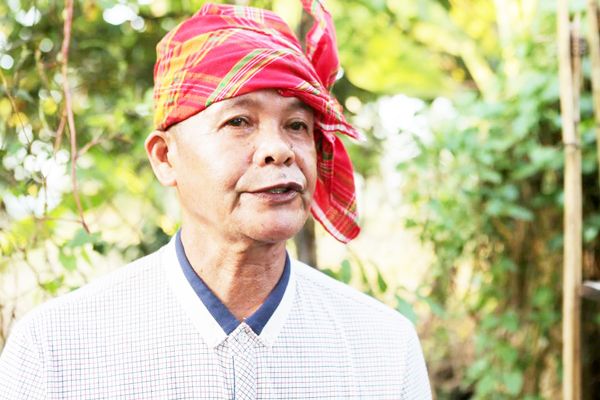DAVAO CITY – As police have yet to solve the killing of South Upi, Maguindanao del Sur Vice Mayor Roland Benito almost two months ago, another Indigenous Peoples leader was gunned down in Barangay Bongo in South Upi on Tuesday, September 17.

MOIRES (Keith Bacongco)
Police identified the victim as Elvin M. Moires, 55, a Teduray council member in Barangay Bongo.
According to the Non-Moro Indigenous Peoples Youth Network (NMIPYN), Moires was the 75th victim of senseless killings perpetrated against Tedurays in the Bangsamoro Autonomous Region in Muslim Mindanao (BARMM) since 2018.
Moires was also the ninth victim of assassination this year based on a list from Timuay Justice and Governance (TJG).
According to reports, Moires was shot dead while on his way home at around 10 p.m. from a wedding ceremony.
Moires was taken to the hospital where he was declared dead.
Maguindanao del Sur Provincial Police Office chief Police Col. Roel Sermese said that they have formed the Special Investigation Task Group (SITG) Moires to conduct a thorough investigation to locate, identify the perpetrators, and file appropriate charges before the court.
“We are sparing no effort in our quest to gather substantial evidence and testimonies to shed the light on this incident and put the perpetrators behind the bars,” Sermese said.
But Timuay Alim Bandara, one of the key leaders of the TJG, is not hopeful that justice will be served amid the killings of his fellow Tedurays.
Bandara believes that the killings perpetrated against the Teduray and Lambangian tribes could be the result of their firm stance against the entry of proposed mineral explorations within their ancestral domain claim and local politics.
Benito and his driver Weng Ramos were killed in an ambush in Barangay Pandan, South Upi On August 2.
Deeply alarming
Froilyn Mendoza, a member of parliament representing the Non-Moro Indigenous Peoples (NMIP) in the Bangsamoro Transition Authority (BTA), said the killing is deeply alarming, adding that it is no longer an isolated case.
“Too many of our Indigenous brothers and sisters have been victims of violence, and yet justice continues to elude us. This lack of accountability fosters an environment of fear and insecurity in our communities,” Mendoza said.
She urged the government to strengthen measures to protect the rights and safety of the Indigenous Peoples in the Bangsamoro region. “The continued attacks against IPs not only violate their human rights but also undermine the progress we strive to achieve in building a peaceful and inclusive Bangsamoro.”
The NMIPYN condemned the senseless and brutal killing of Moires, saying that it is deeply troubling and represents a serious injustice.
“We stand united with the Teduray community and all non-Moro indigenous peoples in demanding immediate and decisive action from the authorities. Those responsible for this violence must be swiftly brought to justice and face the full extent of the law. The cycle of violence against our people must be broken and accountability is crucial,” the group added.
NMIPYN also called for an end to end the systemic violence and discrimination faced by IPs.
“We urge all stakeholders to reinforce their commitment to safeguarding our rights and ensuring our safety. As the youth of IPs, we refuse to stay silent. We are dedicated to fighting for justice, peace, and the protection of our communities.”
Hopeless
Most of the killings were attributed to long-standing land conflict in the region. Police said that the killing of Benito could be due to land dispute. He opposed the entry of outsiders involved in land-grabbing activities in the municipality.
“For now, justice is hopeless. Why? Because if they have given us justice, they should have applied IPRA (Indigenous Peoples Rights Act) while there’s no IP Code yet because it is recognized by the Bangsamoro Organic Law,” Bandara said.
He added that the Bangsamoro government should have passed the IP Code if it is indeed one of its priority measures in the region.
Indigenous groups within the Bangsamoro region have been pushing for the enactment of the proposed IP Code, which seeks to preserve the collective rights of IPs, recognize and develop ancestral domains, strengthen indigenous political structures and political participation, and protect minority indigenous communities from marginalization and discrimination.
The IP code is among the priority legislations of the Bangsamoro Transition Authority since BARMM was established in 2019.
But the Bangsamoro parliament has yet to enact the IP Code along with the revenue code.